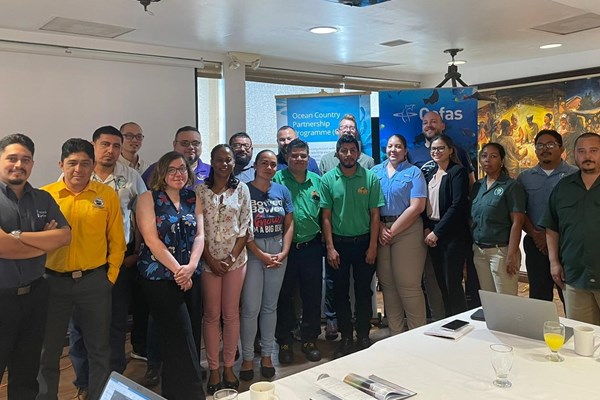Fish Limit Testing and Changes to Hazard Assessment of Pre-2006 Limit Tests
12 May 2020
OCNS scheme registrants can use fish limit testing to provide information on the toxicity of the substances in their product. Registrants are reminded of OSPAR guidance on fish limit tests:
“Where there are no existing fish toxicity test data, it is recommended that a limit test is conducted using the LC50 or EC50 of the most sensitive test species of the other taxonomic groups tested.”
OCNS will be changing how some fish limit tests have been assessed to ensure the assessment of such tests is consistent and aligned with OSPAR guidelines. Previously we have accepted fish limit tests performed prior to 2006 that were tested at the NOEC concentration of the algae or crustacean rather than the EC50/LC50 concentration. Results obtained under such circumstances would not have been used directly for hazard assessment, but we will shortly be discontinuing this practice. Therefore, registrants using fish limit tests that were undertaken prior to the issue of the 2006 guidelines to support the registration of a product may be impacted.
From January 1st, 2021 products submitted for registration/re-registration will be assessed based on the quoted fish limit test values as submitted on the HOCNF. This is likely to affect a small number of products; in the majority of these cases there will either be a modest increase to the template Hazard Quotient (HQ) or no change. There will however be some products that will have a more significant increase to HQ or even a change to substitution status.
No action is required by a registrant of a product using fish limit tests because the change will only affect those products that have used fish limit tests based on NOEC of other aquatic toxicity tests. For those products that are affected hazard assessment will now use the limit value that the registrant has already provided for assessment (the limit test NOEC value will be used as a precautionary substitute for the LC50). Therefore, submission of new test data will not be required unless a registrant considers it would be beneficial to provide new data. Registrants should discuss the effect of the change in fish limit tests assessment on their registered products with an OCNS hazard assessor at the point of recertification.
The ongoing COVID-19 pandemic has the potential to impact on the ability of testing laboratories to deliver normal services. In the event that a registrant needs to commission alternative testing and they are unable to do so because of COVID-19 they are encouraged to discuss the situation with Cefas who will seek to make reasonable adjustment.
OSPAR Protocols on Methods for the Testing of Chemicals Used in the Offshore Oil Industry, OSPAR Commission 2006, Publication Number: 260/2006, Annex I, 14, pg 23.





